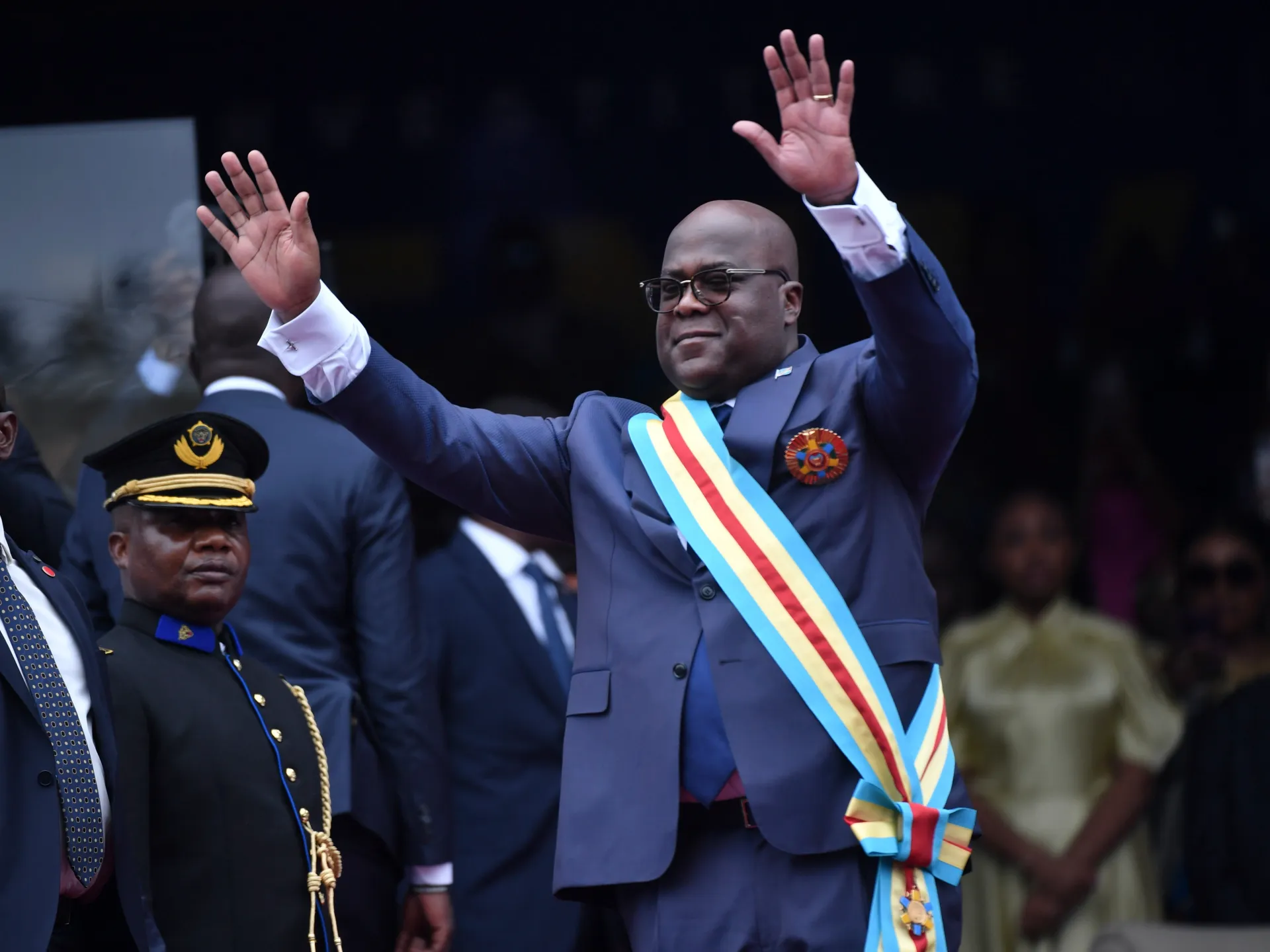The condemnable coup attempt in DR Congo
Another sad chapter in the tragic history of the Democratic Republic of Congo (DRC) occurred recently with an attempt to overthrow the government of President Felix Tshisekedi. Details of the coup attempt given by DR Congo army spokesman, Brigadier-General Sylavin Ekenge, stated that about 50 persons were involved in the attack. Included in the attack […]

congo
Another sad chapter in the tragic history of the Democratic Republic of Congo (DRC) occurred recently with an attempt to overthrow the government of President Felix Tshisekedi.
Details of the coup attempt given by DR Congo army spokesman, Brigadier-General Sylavin Ekenge, stated that about 50 persons were involved in the attack. Included in the attack were some Americans and a British citizen.
The attackers in army uniforms first stormed the house of Vital Kamerhe, President Tshisekedi’s Chief of Staff, where they reportedly exchanged fire with guards at the residence which resulted in three fatalities. Another group also stormed and briefly occupied the Palais de la Nation, the office of the president located in the city centre of Kinshasa, the capital before they were repelled by loyal forces of President Tshisekedi.
The attackers were members of the New Zaire Movement, led by exiled politician Christian Malanga, who fled to the United States of America, where he acquired citizenship of that country. Mr Malanga who was among the assailants at the presidential palace was shot and killed. His son Marcel was among the three Americans arrested in the coup attempt.
- Reflections on the new National Anthem as patriotism and hope renewed
- The forgotten Abuja tourism plan
As expected, condemnation followed the coup attempt. African Union chair, Moussa Faki, issued a statement condemning the coup attempt and commended the country’s security forces for their response in quashing it. The African Union chair said that the continental body “cannot condone the use of force to change the constitutional order in any African state whatsoever’’.
The US Ambassador to the DR Congo, Lucy Tamlyn, expressed shock at the involvement of Americans in the coup attempt and pledged that America will “cooperate to the fullest extent possible with the authorities of the DR Congo as they investigate these criminal acts and will hold accountable any US citizen involved’’.
It appeared as if the coup was a fall out of last December’s tumultuous elections in the DR Congo in which about 20 persons were reportedly killed in the pre-election violence that gripped the country. Mr Tshisekedi, who was seeking a second term in office reportedly scored about 73 per cent of the votes and the opposition vehemently condemned the conduct of the election and contested the outcome.
The coup leader Chris Malanga whose party participated in the elections had remained implacable. He had sought to rally the Congolese people, including members of the armed forces to his cause. It is this trajectory of action that led him to try to force the issue through an attempted coup in which he lost his life along with others.
We at Daily Trust join others in condemning the attempted coup in the DR Congo, which is a continuation of the agony that has marked the fate of the country from colonial times to date.
DR Congo suffers the paradox of being arguably the richest country in Africa, teeming with all kinds of rare minerals like cobalt, copper, uranium and lush green agricultural land for plantation of rubber and other tropical fruits. But like many African countries, its people have remained traumatised by years of insurrection, wars and political upheavals, leaving the country always in a state of uncertainty. The authority of the central government is hardly felt in the outlying districts from the capital, Kinshasa, where war lords and gangs operate.
This is prevalent in the eastern part of the country, where the forces of neighbouring countries, Rwanda and Uganda are occupying some swathes of the area. Although, both countries have maintained that their presence is not an invasion, but to prevent fight between rival forces of war lords from spilling into their countries, as their continued stay there has raised genuine security concerns in both the DR Congo and the East and Central African regions and beyond. These fears are also underlined by the widening spectre of superpower rivalry which is manifesting in the Francophone countries between Russia and China on the one hand and the US and France on the other. Under the present circumstances DR Congo with its vast trove of strategic mineral resources risks being another theatre where this rivalry could play out dangerously. Presently there are peace keeping troops deployed in the country to help keep the crisis from escalating beyond control with disastrous consequences to the entire region and beyond.
All said, the task of bringing peace to DR Congo lies ultimately with the people of the country. As we have seen that foreign interventions in many forms, no matter how benevolent cannot solve the issues there. It is the primary duty of the people and political elite of the country to subsume their personal and tribal interests and work for the overall interest of their country.
